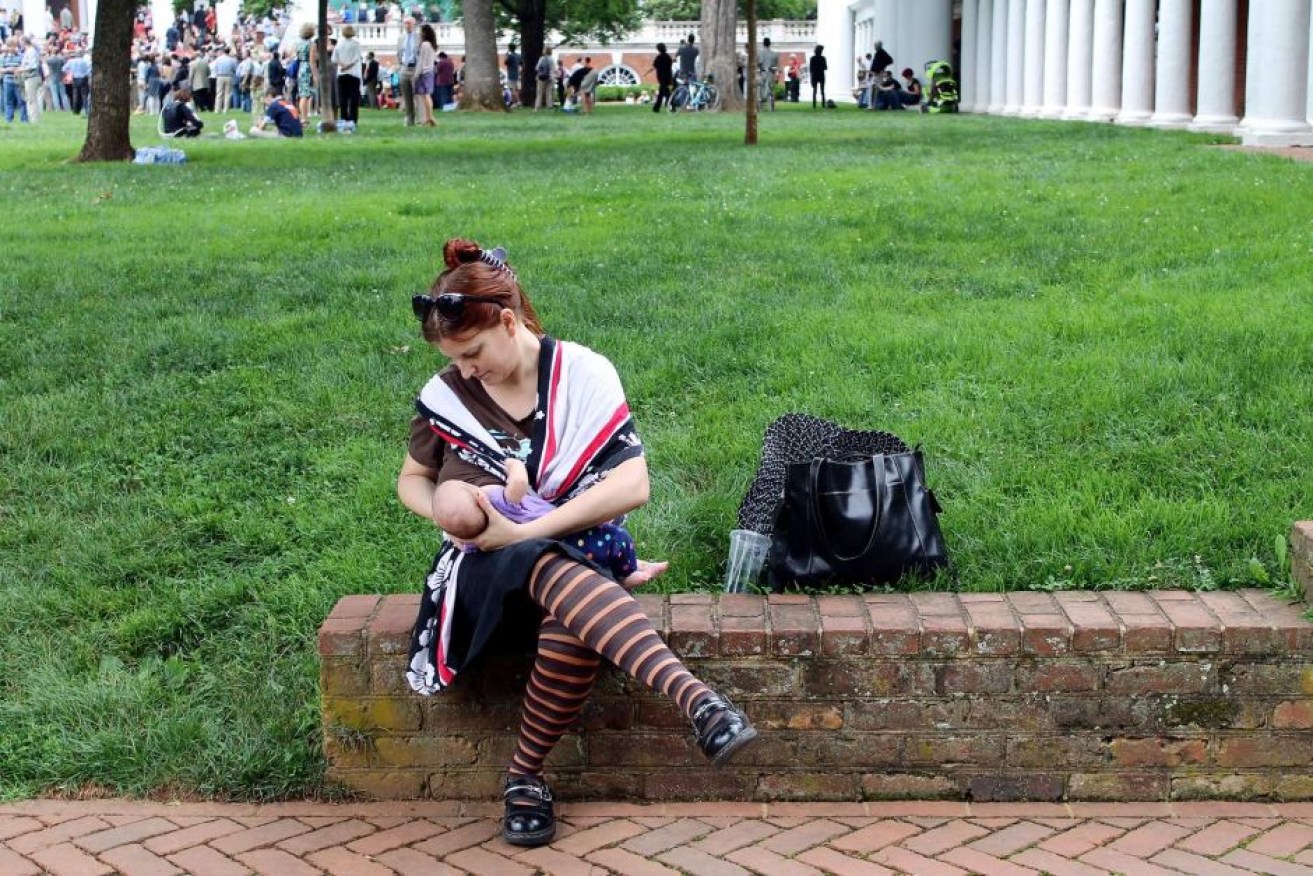National Breastfeeding Helpline providing round-the-clock support for new mums

World Breastfeeding Week is held each August. Photo: Flickr/jocelyndale
When Jennifer Hurrel answered the phone at her home in country Victoria late one night, she wasn’t surprised to find a distraught new mother on the end of the line.
As a volunteer counsellor with the National Breastfeeding Helpline, she had answered similar calls before, but this one proved particularly memorable.
“She said, ‘I don’t know if I can do this. I’m breastfeeding but I don’t know if my baby is getting enough and I don’t know if I can cope with the stress of that’,” Ms Hurrel said.
After suggesting they both make a cup of tea, the exhausted new mum finally stopped crying.

National Breastfeeding Helpline volunteer Jennifer Hurrel. Photo: Jennifer Hurrel
She explained that she had been told by a friend that babies shouldn’t feed more than every three to four hours, but her newborn, who was just a couple of weeks old, was feeding every two to three hours.
In the middle of the night, with no health professionals available, she turned to the volunteers on the free helpline.
“I explained that [babies] have got little, tiny tummies and they’re still learning so they often feed really often,” Ms Hurrel said.
“Some babies will feed less often as they get bigger, but in the early days it’s a really common pattern.”
Ms Hurrel said the call stuck in her mind because she actually did very little but it completely changed this mother’s frame of mind.
“All I did was give her the information to help her realise that what she was doing was the right thing and that’s all she needed.
“She was doing so beautifully, but she was questioning what she was doing and that’s what was creating the stress. So the moment she felt reassured, the distress disappeared.”
Physical skill between two people
The National Breastfeeding Helpline answers up to 6000 calls a month and recently had its 800,000th call.
It’s a free service that’s available 24 hours a day. All the counsellors are volunteers who have breastfed a baby.

Larissa Waters was the first woman to breastfeed in Federal Parliament. Photo: AAP
Ms Hurrel said some new mums found the first time they actually see a baby breastfeeding is when they’re trying to do it themselves.
“I think a lot of us learn visually,” she said.
“The example I always give is you can read how to ride a bike, but then you have to get on a bike and give it a go. Even watching someone else ride a bike doesn’t tell you how you’re going to ride it.
“It’s a bit like that with any physical skill, and breastfeeding is a physical skill between two people, between a baby and a mum.”
Ms Hurrel came across the helpline when she was having trouble breastfeeding her son 16 years ago.
She started volunteering to provide support to other women.
“If a mum wants to breastfeed, I believe they have a right to support and sometimes in our community that support is lacking,” she said.
Benefits of breastfeeding
Curtin University public health professor Jane Scott said breastfeeding had experienced a resurgence since it dipped to its lowest rates around the 1960s and ’70s.
The World Health Organisation (WHO) has spearheaded the promotion of breastfeeding in recent decades, recommending that where possible babies should be breastfed within one hour after birth until they are six months old.

The National Breastfeeding Helpline provides round-the-clock support to mums. Photo: Tessa Bugeja
Complementary foods should then be added while continuing to breastfeed up to two years or beyond.
“Breastmilk isn’t just a source of nutrition, it’s a source of immuno-protective factors,” Professor Scott told Babytalk’s Penny Johnston.
“They help protect infants from common childhood infections such as diarrhoea and chest infections.
“Breastfed children will still get diarrhoea, they may still get a chest infection, but the severity is likely to be less than if they’re formula fed.”
Professor Scott said breastfeeding had also been shown to reduce the risk of breast and ovarian cancer in mothers.
“I’m not anti-formula per se, because it’s really important that we have a safe alternative for infants that aren’t breastfed, whether that be by choice or circumstance,” she said.
“There’s a couple of things there that conspire against making breastfeeding easier, but with support it’s still possible for most women.”
World Breastfeeding Week is held in August to commemorate the Innocenti Declaration, which was signed in 1990 by government policymakers, the WHO, UNICEF and other organisations to protect, promote and support breastfeeding.
To contact the National Breastfeeding Helpline, call 1800 686 268.
–ABC








